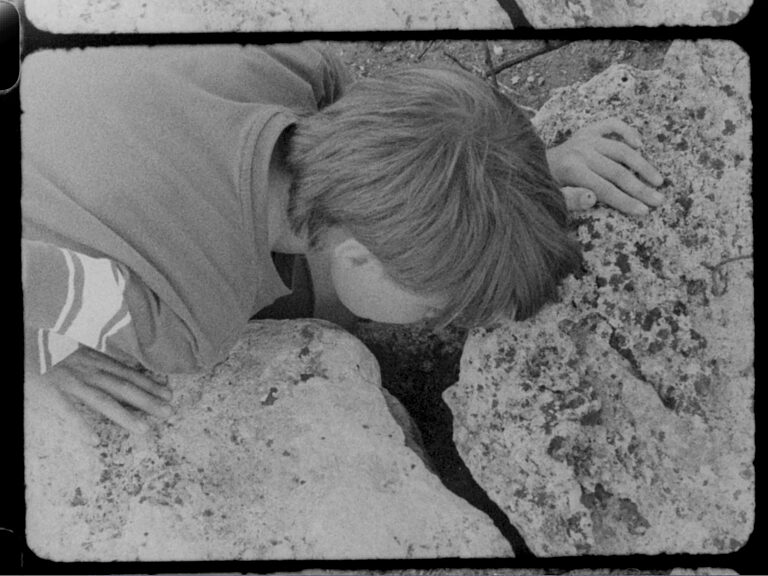Week 12/2024
Every year, the Flemish Audiovisual Fund (VAF) awards a series of Wildcards, a starting budget for graduating filmmakers to make a new short film. Fourteen films were submitted in the Filmlab category which represents more experimental work. On Monday, ArtCinemaOFFoff will present five graduation films from KASK in Ghent and LUCA in Brussels, that competed for the Filmlab Wildcard. The filmmakers will all be present to elucidate the film that brought their school careers to an end.
Chantal Akerman, too, once started her career at a film school, namely INSAS in Brussels. To apply, she first had to pass an entrance exam. Asked about his favourite films of 2023, Pedro Costa’s answer was short and clear: “Nothing moved me more than the 4 four-minute films that Chantal Akerman shot in 1967… as her application to the INSAS.” Akerman’s actual debut, only recently discovered, thus consists of four short films, shot on 8mm, silent and in black-and-white, in 1967 in Brussels and Knokke. They are screening on Friday at CINEMATEK, as part of the Akerman retrospective, together with Saute ma ville (1968) and L’enfant aimé (1971). Akerman was allowed to start INSAS, but it was no unqualified success. After a few months, she quit. “Nobody took me seriously at that school,” she said. “They just laughed at me. I realised that I had to make a film to earn any respect at all. So I went to work for a bank, just long enough to finance a short film, which I shot when I was 18.”
Just like Akerman, Jocelyne Saab didn’t study film, nor did she follow the classic path of a filmmaker. Born and raised in Beirut, Saab was invited in the 1970s by artist Etel Adnan to work as a journalist. Unlike most war reporters, who must travel to war zones to pursue their profession, war came to Saab’s native Lebanon in 1975. That same year saw the beginning of Saab’s filmmaking career with Lebanon in a Whirlwind, an account of the various forces and interests behind the incipient conflict. Saab’s chronicling of the horrors of the war – particularly in her remarkable “Beirut Trilogy” – is unequalled in both its ethical integrity and emotional impact. In the four short films screened at De Cinema on Wednesday, we follow traumatised children playing war, teenagers aspiring to become suicide bombers and women fighting for education and freedom. And we return to her childhood home that was completely bombed to the ground. “Each time I made a film, it was in a given political period; each time I had a political objective, my films couldn’t just be without orientation. That’s not sentimentality. Through a form of sensibility, a political problem emerges.”




